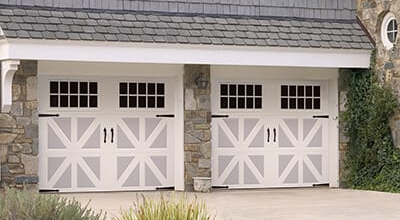Garage Door Repair Braintree MA are exposed to various environmental factors, including moisture, humidity, and fluctuating temperatures, which can contribute to rust formation over time. Rust is a common issue that affects metal components of garage doors, including hinges, tracks, springs, and panels. While garage doors do not have a “soft side” in the same way that fabrics do, they can develop rust on both their interior and exterior surfaces.

In this guide, we’ll explore the causes of rust on garage doors, preventive measures, and methods to address rust-related issues.
1. Causes of Rust on Garage Doors:
- Moisture: One of the primary causes of rust is exposure to moisture. Rain, snow, and humidity can lead to the accumulation of water on metal surfaces, promoting rust formation.
- Lack of Paint or Coating: Garage doors are often coated with paint or other protective finishes to prevent rust. If the paint becomes damaged or wears off, the underlying metal is exposed to the elements, increasing the risk of rust.
- Salt and Chemical Exposure: If you live in coastal areas or regions where road salt is used, the salt and chemicals in the air can accelerate rust formation.
- Poor Ventilation: Inadequate ventilation inside the garage can lead to moisture buildup, creating a favorable environment for rust.
2. Types of Rust:
- Surface Rust: Surface rust appears as a reddish-brown discoloration on the metal surface. It’s generally less severe and can be addressed with proper cleaning and maintenance.
- Structural Rust: If rust penetrates the metal deeply, it can compromise the structural integrity of the garage door components. This can lead to weakness, breakage, and potential safety hazards.
3. Preventive Measures:
- Regular Cleaning: Clean your garage door regularly to remove dirt, debris, and moisture that can contribute to rust formation.
- Painting and Coating: Apply a protective coating or paint to the metal surfaces of the garage door. This barrier prevents moisture from coming into direct contact with the metal.
- Ventilation: Ensure that your garage has proper ventilation to prevent the buildup of humidity.
- Weather Stripping: Proper weather stripping around the edges of the garage door can help keep out moisture and prevent rust.
4. Addressing Rust:
- Light Rust Removal: a. Use a wire brush or sandpaper to gently scrub the rusted area. b. Wipe away the rust dust with a clean cloth. c. Apply a rust converter or inhibitor to prevent further rusting. Follow the product instructions.
- Extensive Rust Removal: a. For more severe rust, you might need to remove the affected parts, such as hinges or tracks, and treat them off-site. b. Sand or grind away the rust until you reach clean metal. c. Apply a rust converter to neutralize any remaining rust. d. Prime and paint the treated area to protect it from future rust.
5. Professional Help:
- If rust has significantly compromised the structural integrity of your garage door components, it’s advisable to seek the assistance of a professional garage door technician. They can assess the damage and recommend appropriate repairs or replacements.
6. Ongoing Maintenance:
- Regularly inspect and maintain your garage door to prevent rust from recurring. Keep an eye on the paint and coating, and address any chipping or peeling promptly.
In conclusion, while Garage Door Repair Braintree MA do not have a “soft side” in the traditional sense, they are susceptible to rust due to exposure to moisture and other environmental factors. Rust can affect both the exterior and interior metal components of garage doors. By practicing preventive measures, addressing rust promptly, and maintaining your garage door, you can extend its lifespan and keep it looking and functioning well.
Braintree Garage & Overhead Doors
0 Campanelli Dr, Braintree, MA 02184, United States
1-781-678-4910